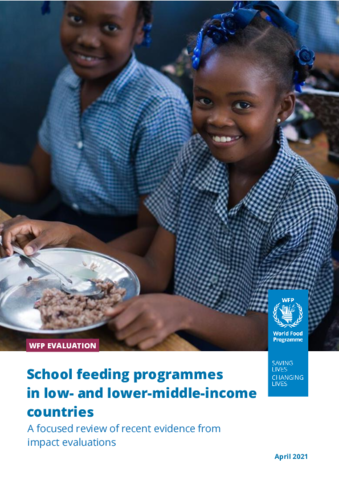
Human capital is considered the most important component of a country’s wealth. Although human capital development continues over a lifetime, the most important phase is the first 8,000 days of a person’s life, when the critical aspects of physical, cognitive and socio-emotional development occur. Well-designed school feeding interventions can potentially have multiple benefits for schoolchildren, their families and their communities, and contribute to achieving eight Sustainable Development Goals, especially in developing economies.
With the primary purpose of providing an evidence base for the impact evaluation initiatives of the World Food Programme’s school feeding programmes, this review explores recent research on school feeding interventions. It synthesizes the evidence from 20 publications on school feeding, including 12 randomized experiments and quasi-experiments, conducted in low- and lower-middle-income countries, published in the past ten years. This review presents a broad summary of the evidence, describing the school feeding modalities evaluated, the outcome measures used in the studies and the reported impact in the key outcome areas.
